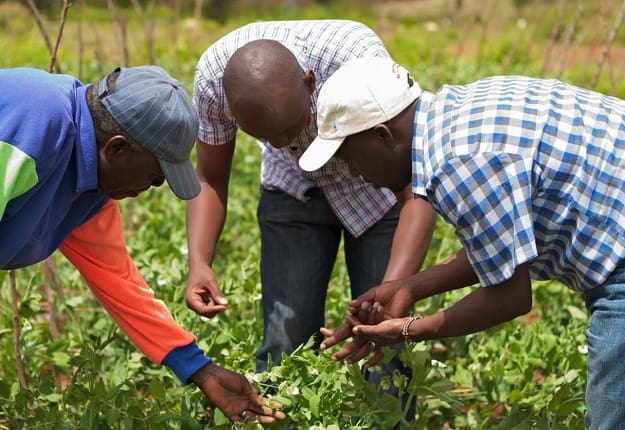This foreword appears in Root Capital's issue brief: Investing in Resilience: A Shared Value Approach to Agricultural Extension
No issue exemplifies the urgency and power of creating shared value better than the productivity and prosperity of smallholder farmers. The core idea of shared value, after all, is that we cannot solve problems such as poverty, food insecurity, and climate change without fully engaging corporations, and that corporations cannot continue to prosper unless they successfully address these issues.
Around the world, 450 million smallholder farmers grow 80 percent of the food in developing markets—despite realizing yields that are only a small fraction of the potential. Constrained by limited access to agricultural training, farm inputs, markets, and financial services, smallholders languish in this yield and income gap. Many resort to survival tactics such as slash-and-burn agriculture or illegal logging that degrade the environment and lead to a vicious cycle of ecological and economic impoverishment.
But that is only half of the story. The unrealized potential of smallholder farmers also limits the success of global business and society at large. The $7 trillion food and beverage industry—which includes many of the world’s largest companies such as Danone, Mondelez, Nestlé, and Unilever—cannot continue to deliver the financial returns expected by their shareholders without tapping into smallholder productivity. More broadly for society writ large, our food supply must increase by 60 percent or more to feed the projected world population in 2050, an impossible goal without radically increasing smallholder yields and resilience to climate change. Governments and development agencies committed to achieving the United Nations Sustainable Development Goals will never succeed if they do not reach smallholders, who account for most of the world’s extreme poor.
In short, the predicament of smallholder farmers reflects the interdependence between business and society that is the essence of shared value. The Shared Value Initiative and FSG continue to work around the world to inspire, teach, and support corporations, governments, and NGOs in applying the principles of shared value to their own business and societal challenges.
Against this backdrop, Root Capital’s issue brief on agricultural extension has rightfully focused attention on a critical point of leverage. As much as we would like to find a technical “silver bullet” to simultaneously increase smallholder yields across the globe, it will be the painstaking work of training and education, farmer by farmer, that leads to change at scale. Root Capital has an enviable track record of helping these farmers access credit. From that vantage point, I am very encouraged by their insights into how shared value approaches to agricultural extension can benefit smallholder farmers, supply chains, and the global communities that depend on them.
Read Investing in Resilience: A Shared Value Approach to Agricultural Extension >

